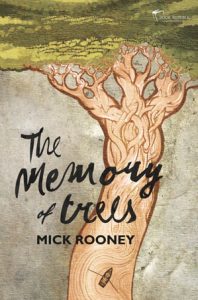 Mick Rooney is an author, editor and publishing consultant from the Republic of Ireland. He has published nine books since 1990, through his own imprint, using author solutions services, and he has also published through mainstream publishers. Several years ago he began researching the publishing industry, and in particular Independent, POD (print-on-demand) and subsidy/self-publishers. Many of the findings of his research can be found at his site, The Independent Publishing Magazine together with his own experiences in the world of writing and publishing. He is the author of To Self-Publish or Not to Self-Publish? A Seriously Useful Author’s Guide. He is also a contributor to many magazines and online resources including, Writers’ Forum, Publishing Basics Magazine, Publetariat, Carnival of the Indies, selfpublishingreview.com, Irish Publishing News, as well as many writing and publishing forums.
Mick Rooney is an author, editor and publishing consultant from the Republic of Ireland. He has published nine books since 1990, through his own imprint, using author solutions services, and he has also published through mainstream publishers. Several years ago he began researching the publishing industry, and in particular Independent, POD (print-on-demand) and subsidy/self-publishers. Many of the findings of his research can be found at his site, The Independent Publishing Magazine together with his own experiences in the world of writing and publishing. He is the author of To Self-Publish or Not to Self-Publish? A Seriously Useful Author’s Guide. He is also a contributor to many magazines and online resources including, Writers’ Forum, Publishing Basics Magazine, Publetariat, Carnival of the Indies, selfpublishingreview.com, Irish Publishing News, as well as many writing and publishing forums.
In September 2011, he published his latest novel with Book Republic, The Memory of Trees, available in hardback and Kindle ebook. When he completed writing the novel, he launched a spiritual site, Strength Through Joy, featuring the serial pieces, Things That Happen, chronicling his own spiritual journey.
Self-Publishing Review: What’s The Memory of Trees and what prompted you to write this work?
Mick Rooney: One of the central themes in The Memory of Trees is the idea that our most precious memories can be ‘remembered’ or ‘entrusted’ to the trees for safe-keeping. Initially, I thought this was a belief exclusive to the Druids, but as I researched the idea more, I began to find similar beliefs were held by the Native American Indians, tribes of ancient South American, and even with cultures and religions in the Middle East and Far East. So, the tree as a very powerful symbol of growth, strength, knowledge and spiritual protection and preservation, permeates throughout the book. For Carlos, a shepherd boy from Cyprus, the forest becomes his ‘leafy cathedral’. The same idea can be developed in so many different ways; after all, the book itself, as a tool of learning and recording our experiences in life, is made from the pulp of the tree. The forests of the world are fundamental to the very air we breathe, and, I also think, an infinite source of ideas in literature, science and spiritualism.
It is strange sometimes what crops ups when you undertake writing a novel. It’s a journey, and I do a great deal of research for every book I write. That can present a lot of tangents and forks in the road ahead for a writer, and the trick is knowing what is the right path to follow that doesn’t distract you from the work, but rather adds to the folklore and strength of the final work. It’s like your own research, Henry, into the myth of 2012, and what the Mayans believed. You, as a writer, have to decide if the research process is more about your own development, or about the development of the book itself. It’s a fine line and compromise. I’m not a writer who writes a book over a few months. A book is a project for me, and it often spans several years. This one began back in the mid 1990’s.
I think a lot of authors begin their writing journey with stories containing or based heavily on very personal experiences. For me, that didn’t really start until I’d written several books. So, after about a year of research, The Memory of Trees took hold of my life as a novel. I’d been working on my own spiritual development at the time – and the two processes just worked beautifully together. Up until then, I did feel my previous work may have been perceived as very much literary fiction, and at times, a little inaccessible. The Memory of Trees is the one book I felt would have a much more general readership.
The Memory of Trees is the story of Carlos who travels from his simple village in Cyprus, following in the footsteps of Saint Paul and his uncle, into the Middle East and along the road to Damascus. Carlos is a teenage island boy, bright, thoughtful and passionate, brought up on the traditions of his village elders. After experiencing personal loss in his life and exile from his village, he sets out on a journey of knowledge and adventure, embracing the spiritual wisdom of the trees and a quest to explore the path his mysterious uncle once took into the Middle East.
 SPR: People who visit TIPM may not realize that you’re a fairly spiritual person, with a leaning towards the esoteric. You also run the site Strength Through Joy. Is the Memory of Trees a reflection of that outlook? Would you consider this religious fiction?
SPR: People who visit TIPM may not realize that you’re a fairly spiritual person, with a leaning towards the esoteric. You also run the site Strength Through Joy. Is the Memory of Trees a reflection of that outlook? Would you consider this religious fiction?
MR: You know, I struggle with definitions – definitions of what an author is and how best their books should be defined.
When I published Academy a few years ago, the first reviews started describing it as an historical fiction. At first, that bemused me. For me, it was like cooking a beef dish and someone saying to you; oh, that looks like a nice dessert. I get close to my work at a very deep level, and I had to accept that in essence the reviewers were right, but I never set out to write a genre specific book. It is what it is – however reviewers or readers tend to want to classify or define books so they can pass on their reading experience to others. I’d prefer to define The Memory of Trees as a spiritual book, rather than a religious book. No religion by creed is directly mentioned in the book, and ‘god’ is perhaps mentioned two or three times in the book.
I did consider publishers of religious and spiritual fiction when I sent the book out on submission in 2009. That’s the problem when you try the genre specific route – oh, it’s not GOD enough for us; oh, it’s not really SPIRITUAL enough!! One US publishing house passed it to their children’s fiction editor because they thought it might best fit with that imprint. Another publisher in the US wanted me to rewrite the book more as a sort of travel world adventure novel. My next work is about alchemy and a serial killer. How would that square with a children’s imprint or an author of a religious novel?! I’ve never had an agent because I’d rather negotiate every book I write on its own strength and terms. I am probably esoteric, and with an agent, after every book, I’d probably have the agent reaching for the bottle of gin, revolver and medicine cabinet!!
I’ve tried to keep my own spiritual journey separate from the work I do on The Independent Publishing Magazine. That’s why I have a separate author site, as well as the personal spiritual site, Strength Through Joy. Originally, TIPM started out in very late 2007 as a place to record my own experience with self-publishing and the research I was doing into many author solutions services. The site address still holds the mickrooney.blogspot.com address. Since then, I’ve gone through two reincarnations with TIPM – POD, Self-Publishing & Independent Publishing, as it once was, and now, The Independent Publishing Magazine. I reached a stage where the term ‘self-publishing’ was devoid of its real meaning, and I was researching and reporting on all that was happening in publishing – print and digital – for everyone, rather than just self-published authors.
SPR: How does this novel fit into your oeuvre of self-published work?
MR: I’ve never ever considered any of my books by the method or path the books reached publication. For me, it’s about connecting with the reader, and when you make that connection, the reader is not consumed by how the book is published, just so long as they can lay their hands on it. As a book, The Memory of Trees is certainly a more accessible book for general readers, in a way that some of my previous work would have been difficult to market. I was convinced after I wrote the book that it would eventually, with perseverance, find a publishing house, and thankfully it did with Book Republic.
SPR: What was your decision-making process about going traditional or sticking with self-publishing?
MR: In 1990, I set up my own publishing imprint and self-published several books at a time when we didn’t have POD (print on demand). I’d spent a couple of years doing the submission rounds with publishers. But really, that’s when it started to get really difficult to interest editors. Publishing was starting to change, and the big fish were quickly gobbling up the smaller fish. It became increasingly harder to find true independent publishers. The publishers were you really stood a chance – beyond the new gatekeeping control – were hard to find. Back then, the Internet was a limited resource and many independent publishing presses and houses hadn’t discovered it. Author handbooks and guides stuck to the rigid line of commercial houses and the defined path of find an agent and let them find you a publisher. Self-publishing was still frowned upon and only a few mavericks like Peter Finch and Michael Legat were even suggesting self-publishing as a viable path.
I began with desktop publishing, learned bookbinding, bought equipment, got my own ISBN’s from Whittacker’s in the UK, at a time when you didn’t have to pay for them, and sold my books directly to bookstores. I learned so much back then. POD came along, and I switched to using Lulu in 2007. For a reprint of an earlier book I self-publisher during the 1990’s, Thais, I tried Blurb. In fact, I’ll stand corrected, but I believe I was the first person to use Blurb as a printer in 2009, and use Amazon Advantage with my own publishing imprint for distribution. It cost me more money per book to sell, but it hasn’t stopped 100+ authors now listing Blurb as their publisher of origin on Amazon today! I made the point directly to Blurb CEO Eileen Gittens back then, that they needed to start offering ISBN’s and online distribution if they were going to be able to take on Lulu and CreateSpace. A lot has improved with Blurb, but the company still has a way to go on developing distribution for authors using the print services.
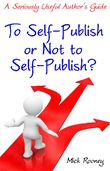 In 2010 I published To Self-Publish or Not to Self-Publish with Troubador in the UK. It meant a lot to me that a book about self-publishing was published by a ‘traditional’ publisher. It seemed to be that every second self-published writer wanted to speak about their experience of publishing and write a book to go with it, and the whole area became incredibly diluted by authors publishing mundane books. No one was reflecting the growth in author solutions services in the UK and Ireland and analysing those companies to the dept I was doing on TIPM. I felt that needed to be put right.
In 2010 I published To Self-Publish or Not to Self-Publish with Troubador in the UK. It meant a lot to me that a book about self-publishing was published by a ‘traditional’ publisher. It seemed to be that every second self-published writer wanted to speak about their experience of publishing and write a book to go with it, and the whole area became incredibly diluted by authors publishing mundane books. No one was reflecting the growth in author solutions services in the UK and Ireland and analysing those companies to the dept I was doing on TIPM. I felt that needed to be put right.
When Book Republic accepted The Memory of Trees, it was the second book in a row to be traditionally published. BR has an option on the next novel, so we will see what happens. I’ve closed no doors on any path to seeing my books published. Both paths, depending on your aspirations and the opportunities that present themselves, are entirely valid.
It’s interesting that you said earlier that visitors of TIPM don’t realise I’m a spiritual person. I’d add, often, few of them also realise I am first and foremost an author. But writing to me over the past few years has been a dual process. More of my working time is taken up with the analysis of the industry, and I have to battle and remind myself that I also need time to be me – as an author. If promoting The Memory of Trees over the past two months has taught me one thing – it is; I need to keep reminding myself that the core of my being and how it all started out is about me being a writer, and what I share with readers and other authors.
SPR: How has your knowledge of the self-publishing industry informed how you’ve marketed this novel? What’s the release been like so far?
MR: Again, as I hinted at earlier, it’s not so much my knowledge of the self-publishing industry, but publishing itself. The approach should be no different – good editing and design and distribution are as much at the core of excellent self-published books as they are at wide commercially published books. For me, the greater publishing industry still publishes many well-edited and produced books that don’t sell well, and many self-published books sell well, but could have done even better had they benefited from better editing, production and marketing. I’ve always believed the best editors in the world are readers, because – to them – a good book is a good book, and readers, once captivated by a book, can be both forgiving and equally scathing.
While I’m not privy to the though process or decision making at my publisher at Book Republic, my impression and experience of working with them is of an innovative and very open-policy publisher. BR allows direct submissions from authors, and the approach is to look for something new, fresh and original in fiction. I also think the strength of an author’s practical, viral network and profile also counts a great deal to the publisher. I was involved at the design level far more than I have experienced with other traditional publishers. What I liked best about BR was their openness to adopt their publishing philosophy to every book as a singular project, rather than try to apply a rigid template across the board for every book.
Most of the marketing for The Memory of Trees, following the launch at the Irish Writers’ Centre in Dublin, has been viral, concentrating on the blog tour and social networking. It’s been about using those tools to generate interest in the book (both print and ebook) and to get stores to stock the book. That’s the key for any author and publisher. Book Republic has distribution through Ireland’s largest book print distributor, Gill & MacMillan, but that doesn’t guarantee your book will be on bookstore shelves. We lost Borders in Ireland more than two years ago, and this year, Waterstones pulled out. But some of the smaller independent booksellers like Dubray Books and Hughes & Hughes are showing strong signs of mopping up that part of the market. Book Republic is a very progressive and innovative publisher, releasing titles through print production runs (hardback & paperbacks), POD paperback, as well as Kindle editions. The book only reached the physical distribution channels earlier this month, so we are still at an early stage. I think that is the other thing different with independent presses and smaller innovative publishers. They look at the long tail for promotion and sales of a book, rather than the sudden immediacy larger publishers seem to adopt.
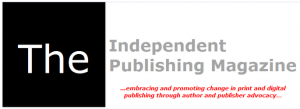 SPR: How did you juggle all of your daily writing for TIPM with writing a new novel? Do you think blogging – about any subject – can actually strip some of the writing urge for fiction?
SPR: How did you juggle all of your daily writing for TIPM with writing a new novel? Do you think blogging – about any subject – can actually strip some of the writing urge for fiction?
MR: To be honest, Henry, it can be a real struggle to wear both hats at the same time. When I signed the publishing deal with my publisher, I knew I was going to have to cut back on the amount of time I was devoting to being a publishing consultant and running TIPM. I felt I had to break a perception among my own network that saw me solely as a journalist, researcher and writer. I spent three solid years building TIPM and many of the authors and publishers I met and spoke to were entirely unaware that I started out many years ago as a novelist. There are times when I feel pangs of guilt that I almost abandoned a small but dedicated readership when I last published a book of fiction in 2008. For them, The Memory of Trees has been a long wait.
As much as I’d like to think my general readership is singular – the reality is that there are readers, and then there are writers. I think – without disparaging any of my readers – that writers through their own work and study adjust their perspective and what they will read dependant on the relevance to their work, rather than their lives. Readers, on the other hand, want to be just as stimulated as much as writers, but are less cynical—if that’s not too strong a word—and readers are more open to surprise and the romance of discovery. I hope I’m explaining this well enough, but there is certainly a kinetic difference between a writer and a reader. It goes far beyond the idea that one is a creator and the other an explorer. For me, my readership is split down the middle. Some know me only through TIPM, and others have no interest in the publishing and research stuff.
In 2012, my primary goal is to place more of a focus on my own writing. I’ve no idea what impact that will have on my day to day work for TIPM, but I know my readers deserve another book within the next year. On New Year’s Eve, it’s that wish I will be raising a glass to. In 2012, I have also given the commitment to be the self-publishing columnist for one of the UK’s biggest writing magazines, Writers Forum, and I’m looking forward to that. Whatever happens, I know I will have to be more discerning in the work I take on.
SPR: What’s your take on self-publishing and where it’s going? When both SPR and TIPM started, print on demand was the way to go, and now it’s somewhat being fazed out. POD outfits have to be panicking somewhat – or do you think there’s still a healthy market for POD? Maybe everything will be POD at some point.
MR: This is a tricky question. The Kindle, and ebooks in general, have been the game changer. I think POD may become the method of normality for publishers in regard to printed books, but only because high street booksellers will find it hard to compete with online booksellers and ebooks will become the new ‘mass-market paperback’. POD works only because it localises a global publishing world. Print is only viable if the masses demand it. By definition of world economics – print is going to increase in cost over the coming years, to a point, offset print runs by publishers will reduce, maybe even equalising with POD unit prices for smaller runs. Yes, for some small and moderate sized publishers, POD, or more accurately, short digital runs, will become the standard model.
I’ve always said that the printed book will become a gift in the future of publishing—both for reader and publisher. The game entertainment industry has already grasped this idea and Microsoft and Sony have long being developing live online platforms for gamers. Every major Q4 game this year has a special, limited, or collector’s edition, priced much more than the standard edition, but still dedicated gamers to a brand will pay that increased price – whether it’s Assassins’ Creed, Call of Duty, Need For Speed or whatever. Big book publishers need to raise their backsides from their lunchtime salads and evening steaks and see what the gaming industry is doing to promote product and create branding on the long tail. Sure, it’s easy to sit back knowing the brand name of a bestselling author will deliver that regardless in many cases, but that kind of publishing is for lazy smucks trapped in a model of publishing that has changed little since the 1950’s, and in 5 years time, publishers relying on this kind of model will be praying on Christmas arriving in late summer.
Self-publishing as a term of publishing is a complete oxymoron – it makes no sense to me anyone. It doesn’t define what authors are doing today with Kindle or any author solutions service. Walt Whitman was a self-publisher – he studied print techniques of the time and published his work. I laid out pages on a simple word processor and studied bookbinding for my first book, Arcadia, in 1990, registered my own imprint – does that make me a self-publisher? Does going to CreateSpace or Lulu with your own registered ISBN make you a self-publisher? Does using AuthorHouse, Xlibris or iUniverse mean you aren’t a self-publisher because you don’t have your own batch of ISBN’s? Self-publishing seems to have become whatever authors want it to mean, and likewise, also means anything to an author solutions service or vanity press.
SPR: You’re based in Ireland, close to the UK, and you also spend some of your time in the Netherlands – what’s the attitude like now regarding self-publishing in the UK. Is the sea change as rapid as it is in the U.S.?
MR: I think initially self-publishing was about three to four years behind the U.S. over the last decade. The gap has shrunk considerably. What I have found since I wrote To Self-Publish or Not to Self-Publish is that UK companies are quicker to understand the importance of distribution and many started from much smaller bases in significantly smaller market. Too many U.S. author solutions services have made the mistake of overstretching themselves to a point where the quality and attention to author’s books has dramatically deteriorated. That stretch is the difference between companies offering a one-on-one dedicated value-for-money service to being simply an author mill. In the early 2000’s, there was no ebook and no distribution platforms like Kobo or Smashwords. They’ve been game changers as well, though not as much now since the Kindle Publishing has come to the UK. There are not as many author solutions services in the UK and Ireland, but significantly, the better companies have learned quicker because of the mistakes of their American cousins. You don’t see as many companies popping up over a year and quickly disappearing in the UK as much as you see in the U.S.
While many self-published authors want the kudos of holding a copy of their books, the signs are that the savvy authors are wisely foregoing the initial move to print and focusing on building their brand and readership in digital, before making the investment in print.
SPR: What’s next for you at TIPM and next for you with fiction?
MR: I’m always trying to push the envelope on TIPM, and though the reviews will continue, I’ll try and be a little more selective, focusing more on those services I feel are truly innovative, rather than just a rehash of a model of POD service to authors offered by many other established companies. Digital publishing and ebooks have taken a front seat with TIPM and I plan to focus the reviews more on those companies and services.
I plan to finish the novel I’m working on at the moment, “Shadow & Orchid,” and it is a very different kind of book than The Memory of Trees! I like to keep myself on my toes as well as my readers!
SPR: Thanks, Mick. Good luck with the book release.
Links:
The Independent Publishing Magazine
To Self Publish or Not to Self-Publish
The Memory of Trees | @ Amazon
Mick Rooney @ Facebook.
Get an Editorial Review | Get Amazon Sales & Reviews | Get Edited | Get Beta Readers | Enter the SPR Book Awards | Other Marketing Services


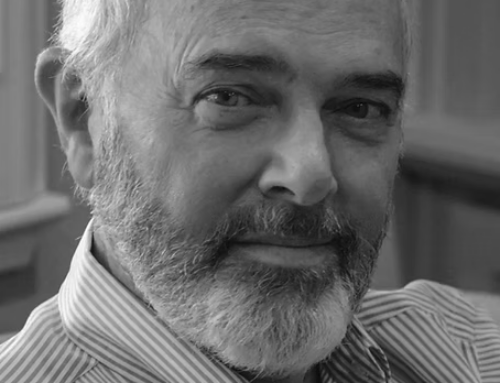









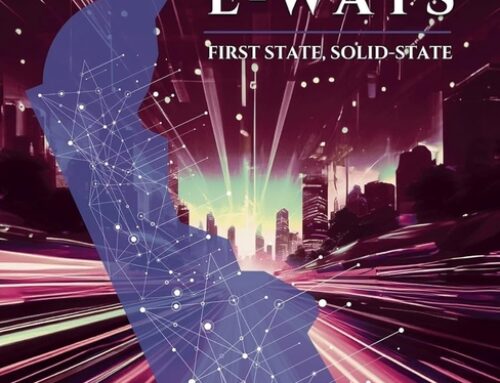





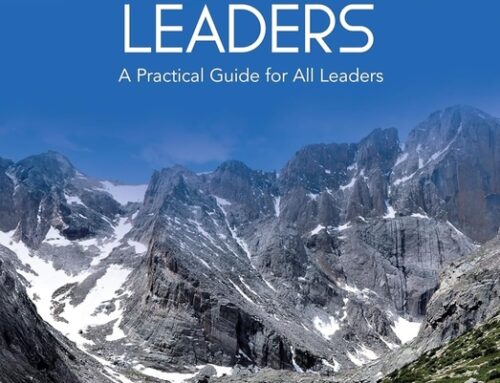
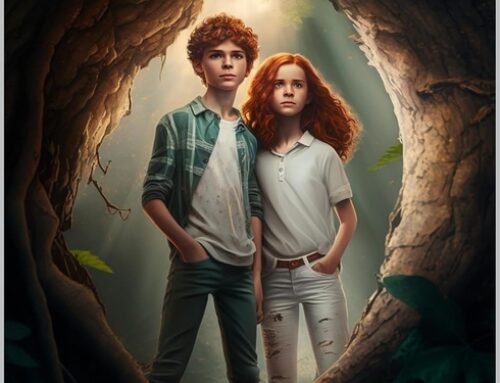

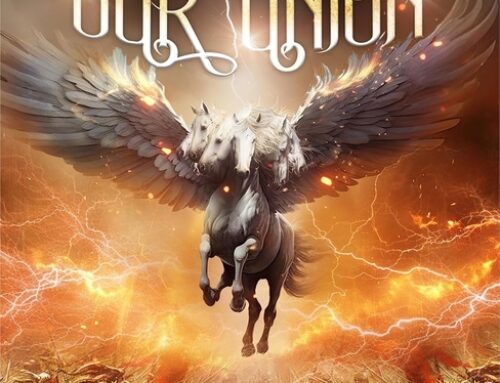
Leave A Comment